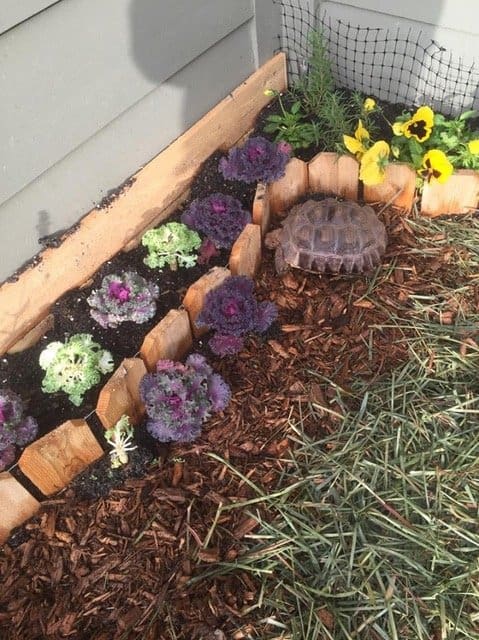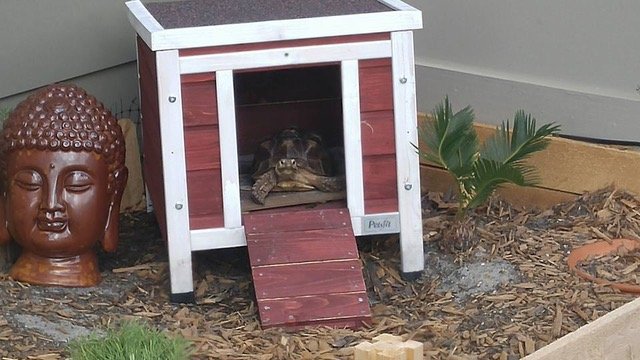The steps to becoming a vet can look different for everyone. Going to vet school later in life is possible! It will take some time to complete the LSU vet school requirements and pre-requisites, and each of us will have our own path to becoming a veterinarian. Ryan started vet school in his 30’s, which is proof that it is never too late to follow your dream. Going to vet school later in life is possible.
You may be wondering “is it too late to become a vet?”. The answer is no, it is not too late, and going to vet school later in life is possible. You will need to start getting some animal experience hours in and taking undergrad prerequisites like organic chemistry and microbiology.
- Hardcover Book
- Hare, Brian (Author)
- English (Publication Language)
- 384 Pages - 02/05/2013 (Publication Date) - Dutton (Publisher)
Name, veterinary school attended, and year that you started.
Ryan M. Andree, Louisiana State University 2015 (DVM candidate class of 2019)
In the photo above Ryan is using one of the best veterinary stethoscopes during his vet school years.
Who are the animals that you currently share your life with?
Louis, my Cairn terrier
Mike, my Sulcata tortoise
My two seahorses and fish
Oh—and my 12-year-old son, Braeden
Where did you attend undergrad and what was your major?
LSU—BA in Mass Communication with emphasis on Advertising and Electronic Media
We know that you are becoming a vet later in life, at what age did you get in?
35 [Starting my career as vet tech (check out some vet tech hoodies, if you are a vet tech with pride)first helped me during vet school]
You can go to vet school later in life!
How many schools/application cycles did you apply to before being accepted?
once
How many schools invited you for an interview?
One (LSU School of Veterinary Medicine was the only school I applied to)



Do you remember any specifically challenging interview questions?
It was such a nerve-racking experience, I do not remember all of the questions, but I do remember questions regarding potential ethical/moral dilemmas regarding unnecessary euthanasia. I also had questions about the biggest obstacles for current vets in practice. too.
What was your GPA (in undergraduate)?
3.7
What was your GRE score?
I do not remember. I fell within the range, but I was certainly not the highest in my class—nor was I the lowest.
Did you attend grad school?
I did, but I did not finish my thesis due to going through a divorce and subsequent depression.
How many extracurricular activities did you list on your application?
Several, especially those that involved volunteering time such as coaching little league, cub scouts, etc. I think it is important to have experience outside of animal-related extracurriculars. The steps to becoming a vet can look varied for each applicant.
Did you have exotic, large, and small animal experience prior to applying to veterinary school?
I volunteered one summer several years prior with the exotic department at the LSU Vet school. A great summer job with animals! This exotic animal experience may have helped me get ahead with the LSU vet school requirements.


What types of paying jobs did you have before starting life in vet school?
- Advertising agency in San Francisco
- Wine/Liquor Sales
- Radio Advertising Sales
- High School Biology teacher
- Animal behaviorist/obedience trainer
- Kennel worker
- Vet tech
We feature another student who went from vet tech to veterinarian in this article.
How many people read your personal statement before submitting it? Do you think that this helped you get ahead with the LSU vet school requirements?
One person—a vet that I worked for helped me substantially.
When did you decide to become a vet?
When I was 4 but felt it was unattainable then, too late. Life finally nudged me to apply to vet school later in life when I was 35-36.
While completing and researching the steps to becoming a vet later in life, did you interview any vets before starting the application process? If so how did you approach them?
I spoke to every vet that I worked for and several friends that went through the process before myself.
Getting Letters of Recommendation When Going to Vet School Later in Life
The steps to becoming a vet require letters of recommendation, who gave you yours? Did you know them well? Did these letters help you with the LSU vet school requirements?
I only asked three people that knew me very well, and I made sure that I had diversity (meaning not all of them were about work/vet med)
- My former LSU rugby coach who could attest to my character, leadership, and work ethic
- A former teammate who also was a professor of equine surgery
- A business owner and friend that I worked closely with
Did you find the application process stressful? Why or why not?
A little. It is time-consuming, but more importantly because my future plans had a lot to do with the outcome of this process.
Going to vet school later in life is possible!
Are you happy that you chose this career? What makes you most happy about this career choice?
Absolutely. I do not remember a time when I was happier.
Do you have any advice for students, once accepted?
Easier said than done—but devote time every night to work.
Any study tips for going to vet school later in life?
Read your lecture notes every evening and ideally, read the notes before lectures as well. Utilize all your resources—including those not provided by your school. Youtube videos helped me tremendously with histology (Shotgun Histology), and many vet schools around the country have some amazing programs and resources such as Colorado State for anatomy, UC Davis for clinical pathology, etc.
What have been some of your favorite classes, within your DVM program?
Clinical pathology has been my favorite thus far—as well as our Advanced Surgery class.
What has been the most challenging class, in your DVM program so far?
Anatomy was rough—to say the least.
Pharmacology, parasitology, and Clinical Pathology were also tough.
As a student, did you have to take out loans for your education? If so, are you concerned about the amount of debt you will have after graduation?
Yes—and trying not to think about it.
At this point do you think you will have a specialty?
I originally thought absolutely not due to my age, but I do love behavior and am considering applying.
Have you read or listened to anything worth sharing?
I recently heard my classmates talking about this podcast which is pretty interesting Vet School Unleashed.
There are some good science podcasts listed here.
How can people find you?
randree@vetmail.lsu.edu
Facebook: Ryan M. Andree

